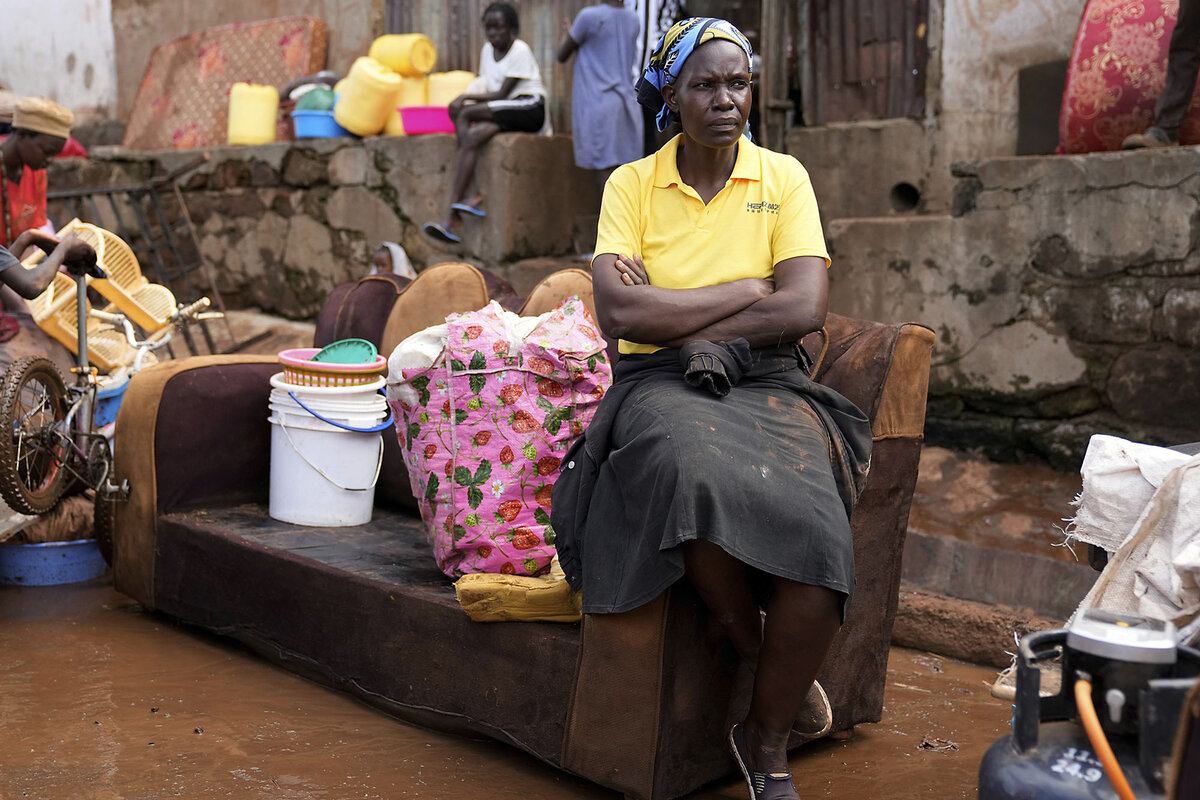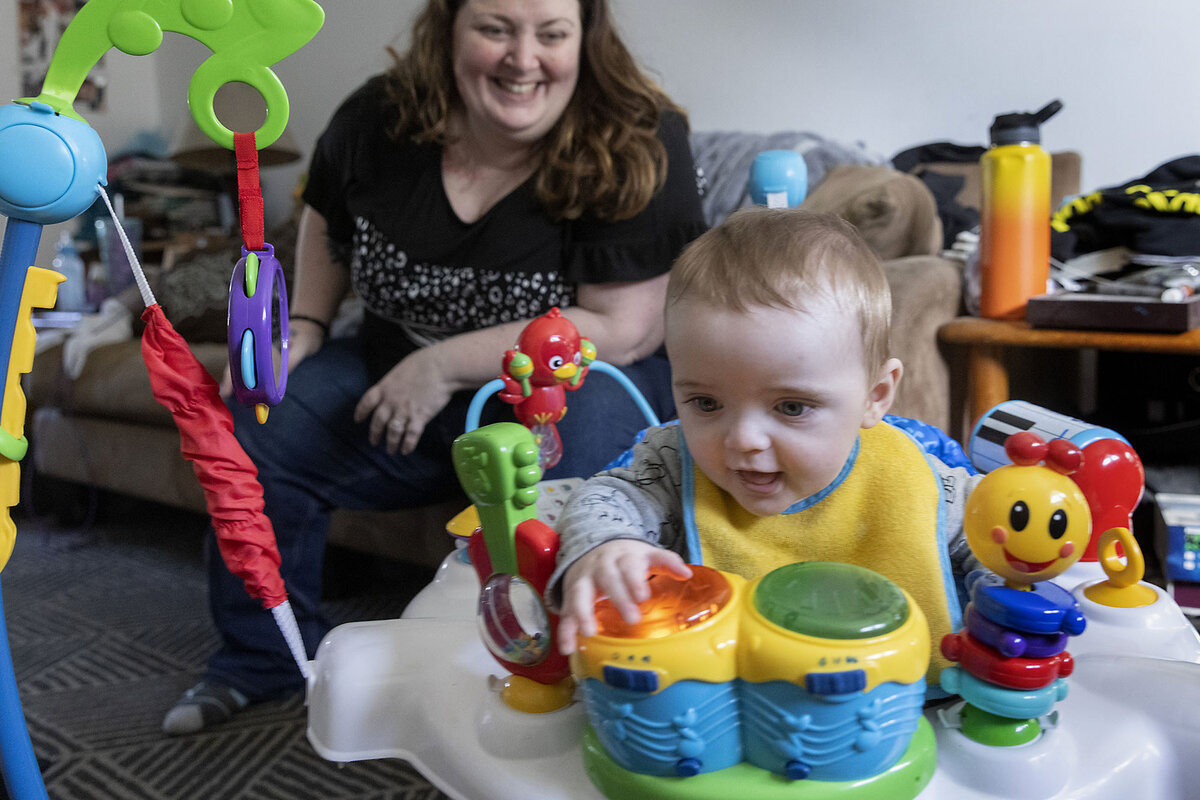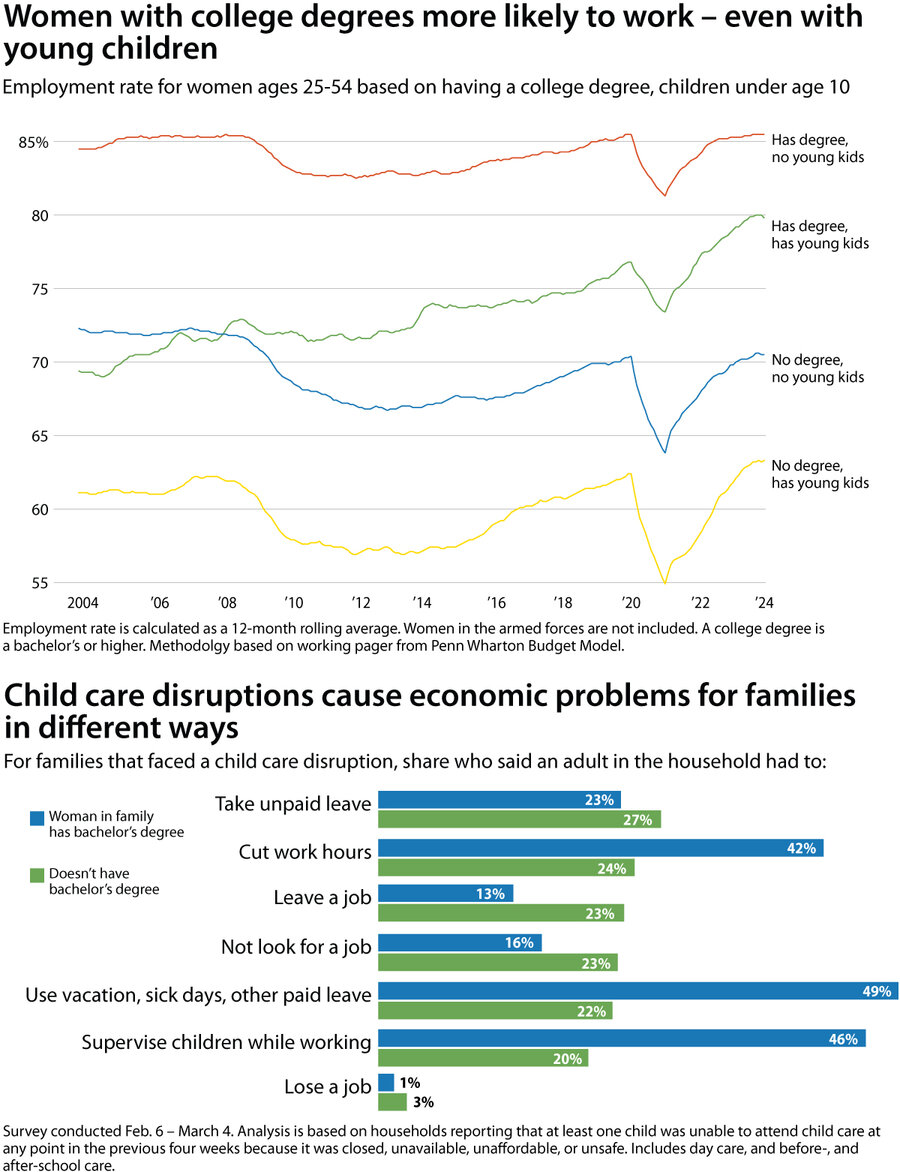As the U.S. Supreme Court prepares to hear a case Thursday on whether presidents have absolute immunity, trust in the high court remains near historic lows. But there is a way forward.

Why is Christian Science in our name?
Our name is about honesty. The Monitor is owned by The Christian Science Church, and we’ve always been transparent about that.
The Church publishes the Monitor because it sees good journalism as vital to progress in the world. Since 1908, we’ve aimed “to injure no man, but to bless all mankind,” as our founder, Mary Baker Eddy, put it.
Here, you’ll find award-winning journalism not driven by commercial influences – a news organization that takes seriously its mission to uplift the world by seeking solutions and finding reasons for credible hope.
Explore values journalism About usMonitor Daily Podcast
- Follow us:
- Apple Podcasts
- Spotify
- RSS Feed
- Download
 Mark Sappenfield
Mark Sappenfield
Henry Gass highlights a fascinating shift in the Supreme Court of the United States. Where once its rulings allowed for recourse among the losers, rulings today are more “winner take all.” This is not just a Supreme Court thing. It fits the political spirit of the time.
And that is telling. If this trend has led to less trust in the Supreme Court (and it has), then it’s no wonder it has made politics more toxic, too. “Winner take all” is not consistent with the ideals of America’s founders. So when we talk about ways to improve politics, changing that mindset might be a good place to start.
Help fund Monitor journalism for $11/ month
Already a subscriber? Login

Monitor journalism changes lives because we open that too-small box that most people think they live in. We believe news can and should expand a sense of identity and possibility beyond narrow conventional expectations.
Our work isn't possible without your support.
Today's stories
And why we wrote them
( 9 min. read )
Today’s news briefs
• Biden signs TikTok ban: After years of attempts to ban the Chinese-owned app, a measure to outlaw the popular video-sharing service wins congressional approval and has been signed by President Joe Biden.
• New abortion case: The Supreme Court is considering a case that will determine when doctors can provide abortions during medical emergencies in states with bans.
• Arizona abortion ban: A proposed repeal of Arizona’s near-total ban on abortions wins approval from the state House, clearing its first hurdle a week after a court concluded the state can enforce an 1864 law.
• Tennessee gun law: Tennessee House Republicans pass a bill that would allow some teachers and staff to carry concealed handguns on public school grounds, and bar parents and other teachers from knowing who was armed.
• Argentinian student protests: Hundreds of thousands of Argentines fill the streets of Buenos Aires and other cities to demand increased funding for the country’s public universities.
( 4 min. read )
Russia has walked a diplomatic tightrope in the Middle East, working with all sides. But the new tensions have forced a shift.
( 6 min. read )
Women have reached historic highs in the workforce. But one group is lagging, and lack of affordable child care is to blame. The Education Reporting Collaborative kicks off its series “Fixing the Child Care Crisis.”
( 5 min. read )
Among the ingredients that successful protest movements need are unity and clarity. Huge pro-democracy demonstrations in Israel last year had that. Six months into the war in Gaza, the ranks of Israeli protesters are growing. But their agenda is overflowing.
( 5 min. read )
A U.N. report suggests that pastoralism may be part of the global emissions problem. Some researchers see the climate math on herders differently. The debate could affect nomadic and pastoral cultures worldwide.
( 5 min. read )
After arrests at Columbia University and other schools, our commentator considers the legacy of civil disobedience. How and why does society’s lens on protests change over time?
The Monitor's View
( 2 min. read )
In early April, the military-run regime in the West African country of Mali banned all political activity. The reason given? For the sake of “public order.” Yet the timing suggests another factor. In neighboring Senegal just the month before, citizens voted out an incumbent president after his unlawful attempt to stay in office. This peaceful transfer of power through democracy did not go unnoticed in a region overrun in recent years by military coups and violent jihadism.
In Mali and neighboring states, militaries have seized power and turned to such patrons as China, Russia, and Iran to help them fend off growing popular discontent. “That is why Senegal is so important,” said John Kayode Fayemi, a visiting professor at King’s College London and former governor of the Nigerian state of Ekiti, during a webinar by Africa Confidential.
Since 2021, six countries along the southern edge of the Sahara Desert known as the Sahel have fallen under military rule. For a while the rebellious officers won hearts with promises of greater security, corruption reform, and eventual elections. Those promises weren’t kept. Extremist violence has spread, curtailing the movement of goods and people. Trade and food production have fallen sharply.
Those challenges coincide with strategic realignments. Once a key partner with the West in countering terrorism, Niger expelled French troops last July and last month broke its security pact with the United States. Encouraged by Moscow, it has also left the regional trade and military bloc along with Mali and Burkina Faso.
The new government in Senegal has kindled new hope among citizens and civil society groups across the region. Through peaceful protest and judicial independence, the Senegalese people and their institutions thwarted antidemocratic moves by then-President Macky Sall to stay in power. Jailed opposition leaders were released. Voter participation soared for the election.
At his inauguration on April 2, new president Bassirou Diomaye Faye pledged “to govern with humility and transparency, and to fight corruption at all levels.” His election may reset the balance of foreign influence. Mr. Faye hosted European Council President Charles Michel this week for talks on trade, fisheries, and economic development. “We share a common ambition ... based on two key principles: respect and trust,” Mr. Michel said.
Elsewhere in the region, from Guinea to Cameroon, people are taking note. “Senegal has given more power and solid arguments to pro-democracy activists in ... the rest of West Africa to say there are no other ways to follow but the democratic way for stability and development in our countries,” Ibrahima Diallo, a human rights activist in Guinea, told the Voice of America.
Mr. Faye’s victory, the United States Institute of Peace noted, “signals that young leaders can win power through ballot boxes and not through bullets.” No wonder Mali’s generals are worried.
A Christian Science Perspective
Each weekday, the Monitor includes one clearly labeled religious article offering spiritual insight on contemporary issues, including the news. The publication – in its various forms – is produced for anyone who cares about the progress of the human endeavor around the world and seeks news reported with compassion, intelligence, and an essentially constructive lens. For many, that caring has religious roots. For many, it does not. The Monitor has always embraced both audiences. The Monitor is owned by a church – The First Church of Christ, Scientist, in Boston – whose founder was concerned with both the state of the world and the quality of available news.
( 1 min. read )
When we pause to let divine Soul inspire us, we find greater peace and harmony, as this poem conveys.
Viewfinder

A look ahead
Thank you for joining us today. I hope you’ll come back tomorrow for Ned Temko’s column about Sudan, which is a conflict the world should not lose sight of. Ned is seeing new sparks of engagement from the United States.









